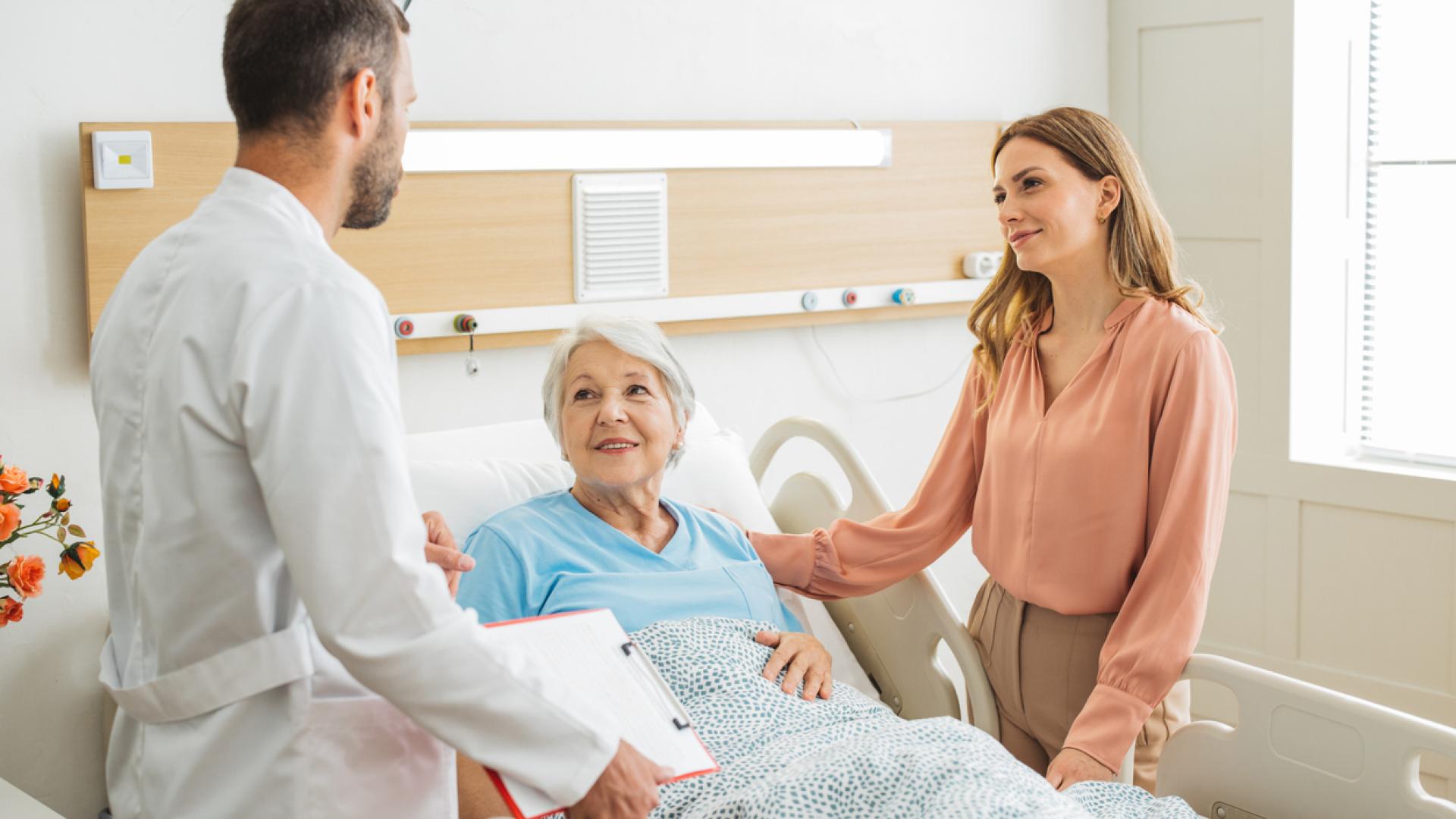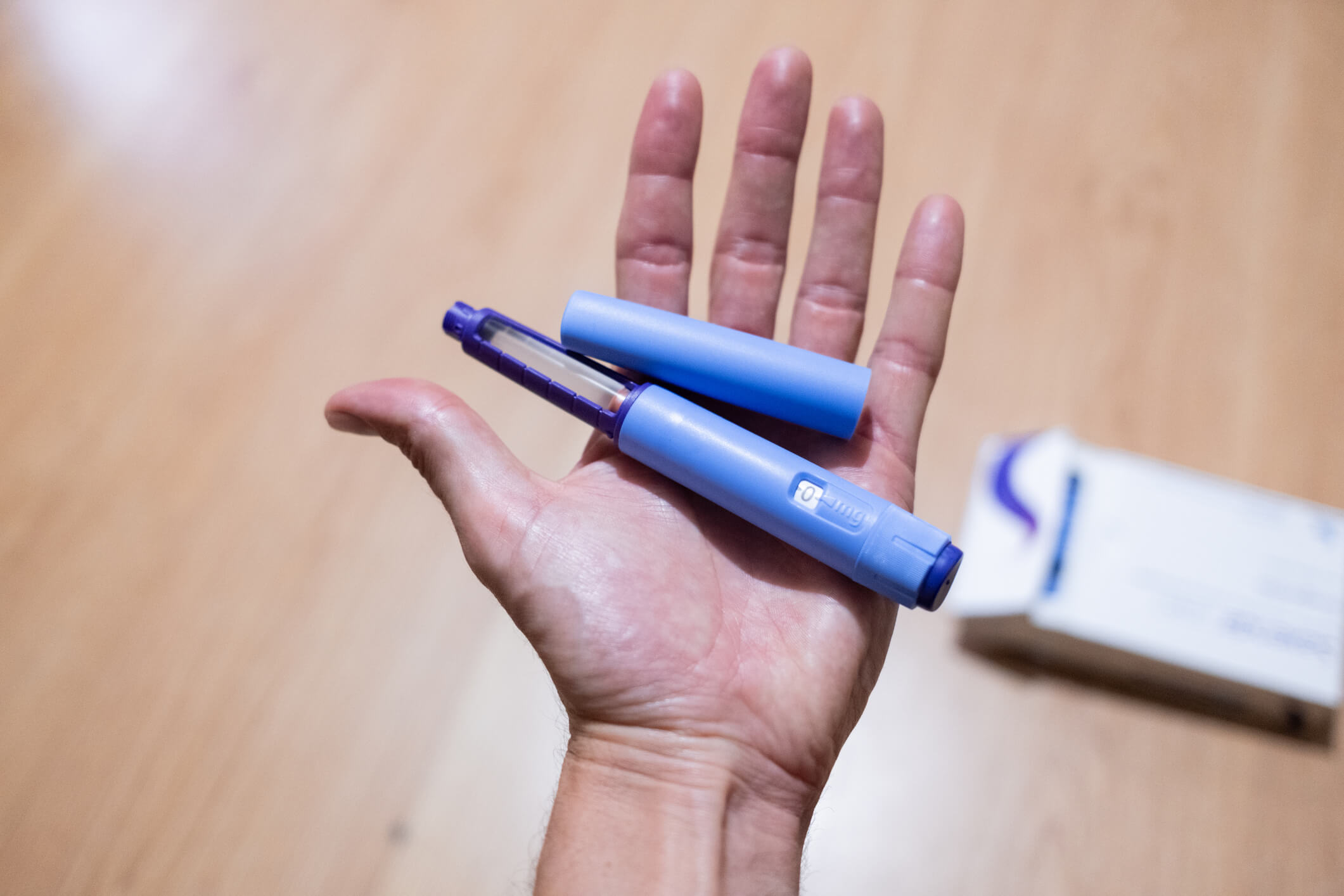
A person with Alzheimer’s can have great difficulty when undergoing a medical procedure, or during a hospital admission. Learn some helpful tips for talking with medical professionals about the special needs of your loved one.
The need for blood tests, IVs, surgery, x-rays, scans, combined with the stimulating and unfamiliar environment of bright lights, bells, overhead paging, and unfamiliar staff, can all contribute to increased confusion, over-stimulation, agitation and aggressiveness during a hospital stay or an outpatient procedure. Over the last twenty years, hospitals and medical facilities have been adapting by training staff about the needs of patients with dementia or Alzheimer’s, and incorporating calming changes to the physical environment, such as dimmed lighting, reduced alarm noises, etc.
Still, for the one with Alzheimer’s, being in the hospital or undergoing a medical procedure can cause great anxiety. As your loved one’s caregiver though, you are in the best position to help medical professionals lessen the over-stimulating consequences of a medical procedure or hospitalization.
You are Your Loved One’s Advocate
You are the one who knows your loved one best. You are his or her advocate. That is what medical professionals need in order to best treat your loved one. The steady presence of a family member or well-known and trusted caregiver is the best resource medical staff can have. You understand him or her best, and this understanding will help medical staff care for your loved one throughout a hospitalization or medical procedure. In addition to your steady presence, there are specific things you can do to help when your loved one is in a hospital and/or undergoing a medical procedure.
Undergoing a Medical Procedure in an Outpatient Setting
- Prepare the staff ahead of time by calling to confer with the physician and staff. You want to be sure they understand your loved one’s condition. They may have a quieter waiting room for you to wait in, or be able to reduce the waiting period.
- Take a written list of current medications, including names, dosage and frequency of use.
- Prior to the appointment, make notes of your loved one’s current symptoms and/or complaints, and record the date and time of each.
- Bring a soothing article for your loved one.
Helping Your Loved One During a Hospitalization
Prepare for a hospitalization well before the need for one comes along. When there, your loved one may experience more confusion, agitation, or aggression. The unfamiliar environment, with bright lights, noises and alarms may all be over-stimulating and confusing. To help minimize the confusion of the experience, here are ten specific steps to prepare for a hospitalization, and to advocate while there:
- Upon admission, provide necessary medical, insurance and legal info, current medication list, written summary of medical history, insurance cards, durable power of attorney information, and points of contact with phone numbers. Keep extra copies with you.
- If feasible, request a private room.
- Try to have a family member or close friend at the hospital as much as possible.
- Make the surroundings more familiar: place family photos and familiar mementos in the room and at the bedside. Label areas with post-it notes or pictures of the type of items in the drawers, closets and rooms, i.e. “bathroom,” “closet,” and “socks,” etc.
- Advocate with physicians and staff. If your loved one cannot speak for him or herself, you must. Be available in the room during physician rounds. Ask questions, and provide information about your loved one. If you need to leave someone else in the room for coverage, be available by phone, and make sure they know how to contact you.
- Bring your loved one’s favorite soothing item – i.e., pillow, blanket, or stuffed animal.
- If needed, complete the menu selections for your loved one.
- Insist on at least one rest period per day for your loved one. Two would be better. Place a “Do Not Disturb” sign on the door during rest time.
- Minimize background noise. Turn off the phone ringer, the TV, and other sources of agitation, as possible.
- Remove any shadows in the room caused by the sun or lighting.
You are a Member of the Care Team
As the caregiver and advocate for your loved one, you are a member of the care team. At an outpatient procedure, at the doctor’s office, and at the hospital, you have an important role in advocating for your loved one. The health care providers need that from you. Your loved one does too.
About BrightFocus Foundation
BrightFocus Foundation is a premier global nonprofit funder of research to defeat Alzheimer’s, macular degeneration, and glaucoma. Since its inception more than 50 years ago, BrightFocus and its flagship research programs—Alzheimer’s Disease Research, Macular Degeneration Research, and National Glaucoma Research—has awarded more than $300 million in research grants to scientists around the world, catalyzing thousands of scientific breakthroughs, life-enhancing treatments, and diagnostic tools. We also share the latest research findings, expert information, and resources to empower the millions impacted by these devastating diseases. Learn more at brightfocus.org.
Disclaimer: The information provided here is a public service of BrightFocus Foundation and is not intended to constitute medical advice. Please consult your physician for personalized medical, dietary, and/or exercise advice. Any medications or supplements should only be taken under medical supervision. BrightFocus Foundation does not endorse any medical products or therapies.
- Lifestyle








